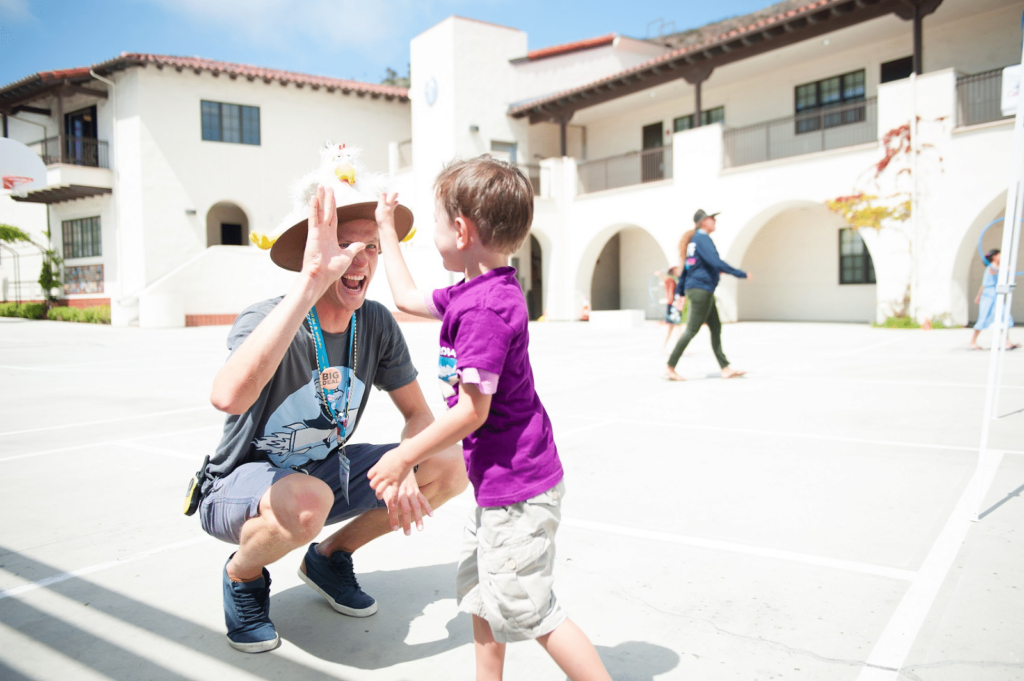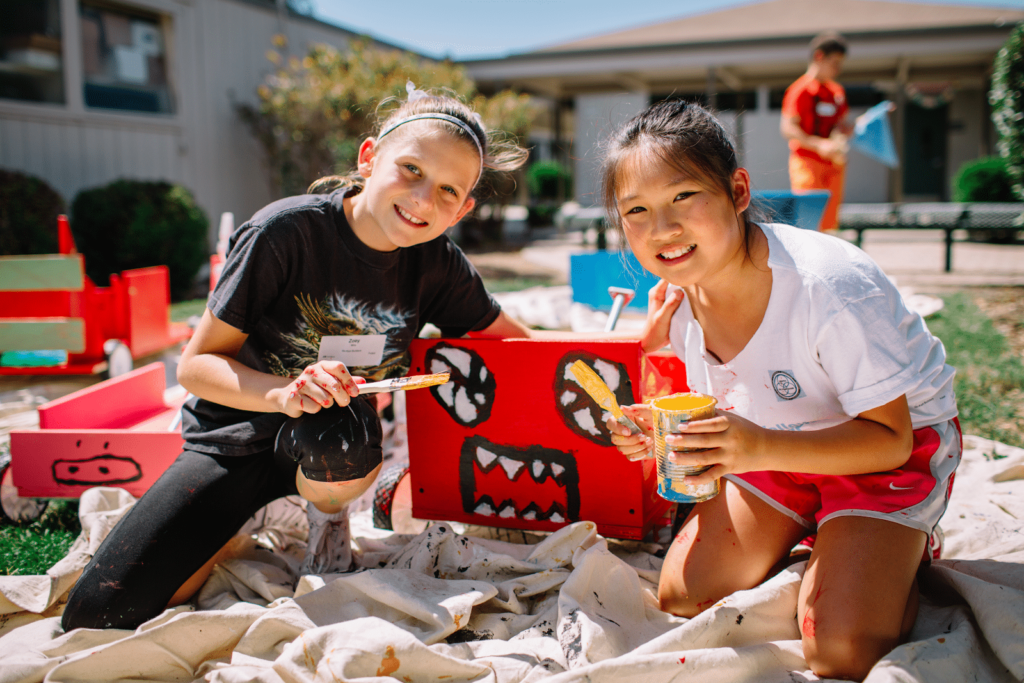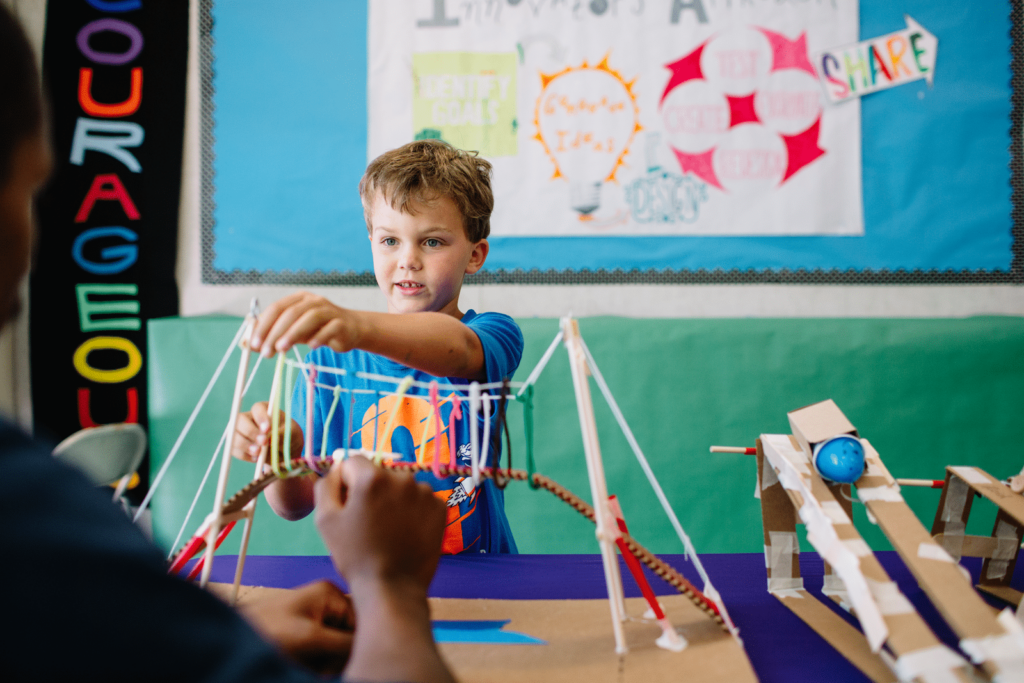Mistakes aren’t the end of the world—they’re a marvelous, messy, necessary part of it. Quitting before you can fail is a natural impulse, but when we avoid trying things to avoid failure it means shutting down a whole world of invaluable lessons and confidence-building successes.
Fortunately, we’re experts on transforming mistakes into awesome opportunities to learn. Here are some common reasons kids throw in the towel, along with helpful ideas to teach them how not to give up boldly, fail bravely and try, try again.
Some Of The Top Reasons Kids Give Up
Many of the great excitements of childhood—things like learning to ride a bike, making new friends, trying out for a team, or tackling new concepts in school—are exciting precisely because success isn’t a sure thing right out of the gate.
Some examples of setbacks that make kids want to give up:
- Lack of progress
- Perception that they’re not progressing at the same pace as their peers
- Apprehension around letting down parents, friends or teachers
- Being scolded by a coach, teacher, or parent
- Perception that parental expectations are too high
- Bullying
- Boredom
When adults help kids to view their mishaps as opportunities to grow and persist rather than reasons to quit, kids learn that failure isn’t forever. The next time your kid experiences one of the setbacks of childhood, you actually have an exciting opportunity to help them become more determined and reflective!

How to Prevent Your Kids from Quitting too soon
Heads Up!
In the beginning, learning new things can feel like a real undertaking. One of the best ways to teach kids not to give up is to prepare them for the learning curve ahead. Have a chat about what’s coming up and introduce the possibility that they should expect that what they are working on will take several tries—and most importantly, that it’s totally okay not to get it right the first few times. Questions like “What do you think will be your biggest challenge?” and “If that happens, what are some ways you might try to overcome it?” will help your child understand that they’re not expected to excel right away and communicate the importance of being determined.
Test It Out
You’ve got a game plan. You’ve talked with your kid about some challenges they might encounter. They’ve come up with ideas on how they’ll overcome those setbacks. They’re excited. They’re ready. And of course, things may not go exactly according to plan. Your kid could encounter an obstacle they hadn’t expected or stumble in an unexpected way. Fear not; it’s all part of the process.
Check in with your child from time to time, and focus on learning more about how your kid is feeling about their new undertaking. Here are some questions to get you started:
- I heard you practicing violin last night. How’s that going for you?
- What’s something you love about this?
- What’s one challenge you didn’t expect? How are you working to overcome it?
- Are you happy with your progress so far?
- What’s something you’re excited to learn next?

Sympathize
If your kid expresses the desire to give up on something they’ve only begun to work on, show them that you’re listening to their point of view. Work with them to understand the challenges they’re feeling, and give them space to share with you without the pressure of action planning or jumping to solutions right away. Whatever you do, be careful not to confuse your child’s goals and interests with your own desire to help them quickly get to the end result.
If a child is truly having a hard time with something, the job of a parent is to be there for them. Show your kid that you’re proud of them for having the courage and determination for trying something new, even when it’s hard. This normalizes resilience, reinforces the idea that failure is not a permanent state of being, and fosters strong self-esteem to keep pursuing the endeavor in front of them (and others that present themselves in the future).
Sometimes kids are able to articulate their thought process around why they want to quit. If they explain the pros and cons, and are able to consider alternatives, this allows you to demonstrate your desire for them to stick it out and commend them for thinking critically.

Present Different Scenarios
Help your child understand all the choices available to them. For example, they might love gymnastics, but not the kids in their group. Quitting gymnastics altogether is one option, but so is working to improve the relationship they have with their peers. If it’s something more than your average tween tiff, you may want to jointly consider exploring other options, like moving to different time slot or changing clubs.
In most cases, quitting is just one of many possible options. Normalize struggle, encourage kids to think proactively about potential challenges, and support them as they work through setbacks. Your kids will ultimately emerge more confident, more self-assured, and better equipped to persist when the going gets tough.
—
At Galileo, we understand it’s essential for kids to approach obstacles with courage and determination in order to teach your kids not to give up. And the best part? We think it’s a whole lot of fun, too. Our best-in-the-biz staff are passionate about encouraging our campers to think and act like innovators, all while having the time of their lives. To learn more about innovation summer camp locations in your area, click the button below.





